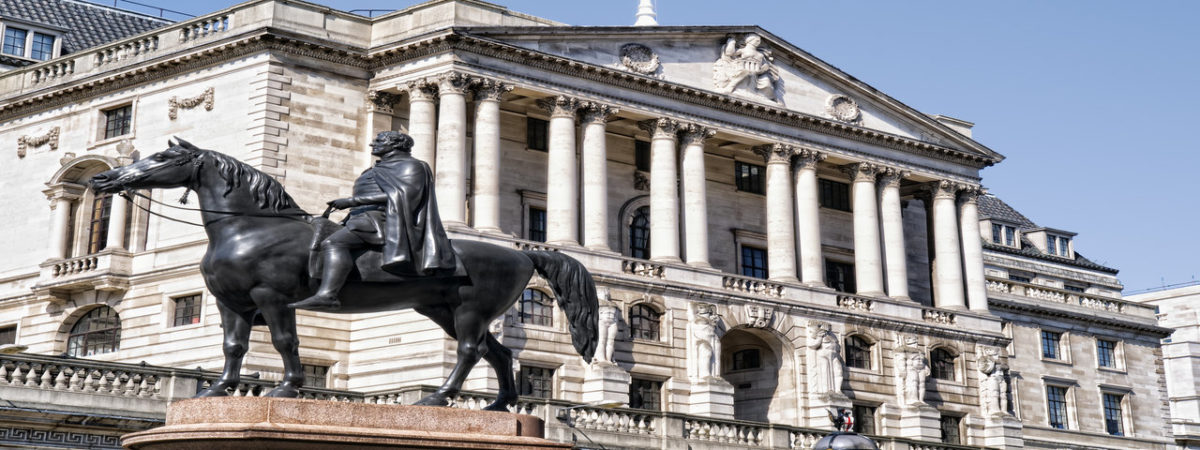Cut interest rates by at least 0.5%, says IEA’s Shadow Monetary Policy Committee
SUGGESTED

Harrison Griffiths writes for City AM

Andrew Lilico writes for The Spectator

- The Institute of Economic Affairs’ Shadow Monetary Policy Committee (SMPC) voted to significantly cut the Bank Rate and halt Quantitative Tightening (QT).
- The majority of the SMPC supported an interest rate cut of 0.50 basis points to 4.75%, while one member went further by backing a cut of up to 1.00 basis point to 4.25%.
- A majority also voted to suspend QT, while a minority of members supported scaling back QT.
- The SMPC is concerned that the Bank of England has not responded to the rapid fall in inflation, which is expected to undershoot the 2% target imminently, much sooner than the Bank’s projections.
A group of independent economists who shadow the Bank of England has called for interest rates to be cut substantially and immediately. Analysts expect the Bank’s Monetary Policy Committee to hold the Bank Rate at 5.25 per cent at its meeting today (Thursday, 9 May).
The Shadow Monetary Policy Committee, hosted by the free market think tank the Institute of Economic Affairs, argues that the UK faces a period of weak growth or even recession if the Bank fails to cut rates aggressively.
The SMPC believes that having successfully curbed inflation, the Bank risks doing serious economic damage by keeping rates too high for too long following a slowdown in the money supply. If the Bank does not speed up the money supply, it increases the likelihood of an unnecessary slowdown and potentially deflation.
The committee expressed concern that the Bank of England has not adequately responded to inflation rates, which are considerably below the Bank’s expectations and set to fall below the Bank’s 2 per cent target imminently. This comes after a review led by former U.S. Federal Reserve Chairman Ben Bernanke criticised the quality of the Bank of England’s forecasting and communication.
The slowdown risk is driven by the lack of growth in the broad money supply (M4), which turned negative last year, indicating a contraction in credit availability. Because price inflation is on track to fall below target much sooner than expected, the Committee concluded that holding rates at 5.25% could severely hurt the UK’s growth prospects.
To boost money supply growth to a stable 4-5% level, members also urged an immediate end to Quantitative Tightening – the process of selling bonds to shrink the money supply and push up long-term interest rates. The consensus view is that the Bank of England needs to shift its monetary policy stance without delay to support the economy and prevent a damaging undershoot of the inflation target.
Dr Andrew Lilico, Chair of the Shadow Monetary Policy Committee and Executive Director of Europe Economics, said:
“The Bank of England was too slow raising rates when inflation was rising because it missed the clear message from rapid growth in the money supply data. It has made a similar mistake in recent months but in the opposite direction: money supply has contracted or grown only far too slowly for many months, yet the Bank has failed to cut rates. The consequence so far has been that inflation is well below what the Bank predicted. The consequence in the future will be inflation significantly under-shooting the target and economic growth being damaged. Rates should be cut immediately.”
ENDS
Notes to Editors
Contact: media@iea.org.uk / 07763 365520
- The Shadow Monetary Policy Committee (SMPC) is a group of independent economists whose purpose is to monitor the decisions of the Bank of England’s official Monetary Policy Committee and make its own policy recommendations.
- The SMPC has met at least once a quarter at the Institute of Economic Affairs (IEA) since July 1997, making it the first such group in the UK.
- The minutes of the April meeting can be found here: Minutes of the meeting of 16 April 2024.
- SMPC member and IEA Economics Fellow Julian Jessop explained the link between inflation and the growth of Broad Money in a September 2023 article for The Spectator. Read the piece here: Is printing too much money the real cause of inflation?
- After its release, Jessop commented that the Bernanke Review Exposes Bank of England’s Failings.
The mission of the Institute of Economic Affairs is to improve understanding of the fundamental institutions of a free society by analysing and expounding the role of markets in solving economic and social problems. The IEA is a registered educational charity and independent of all political parties.



